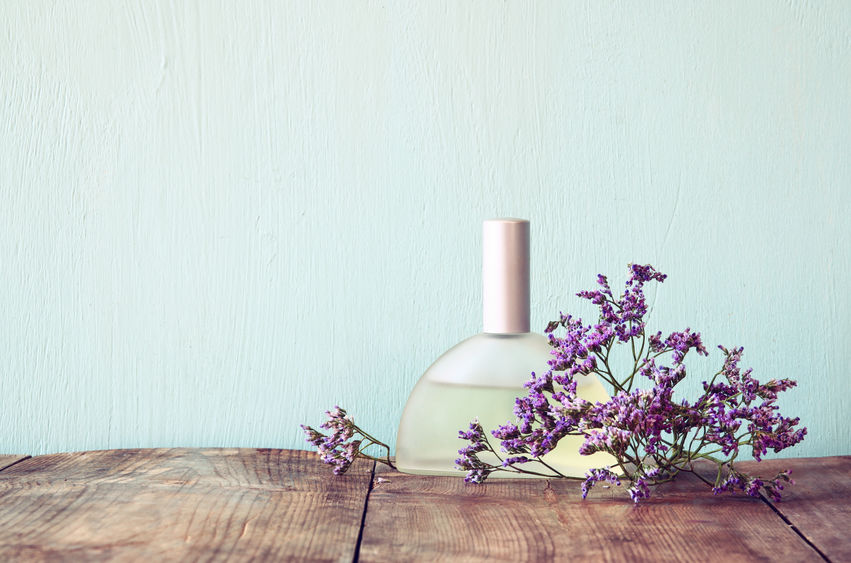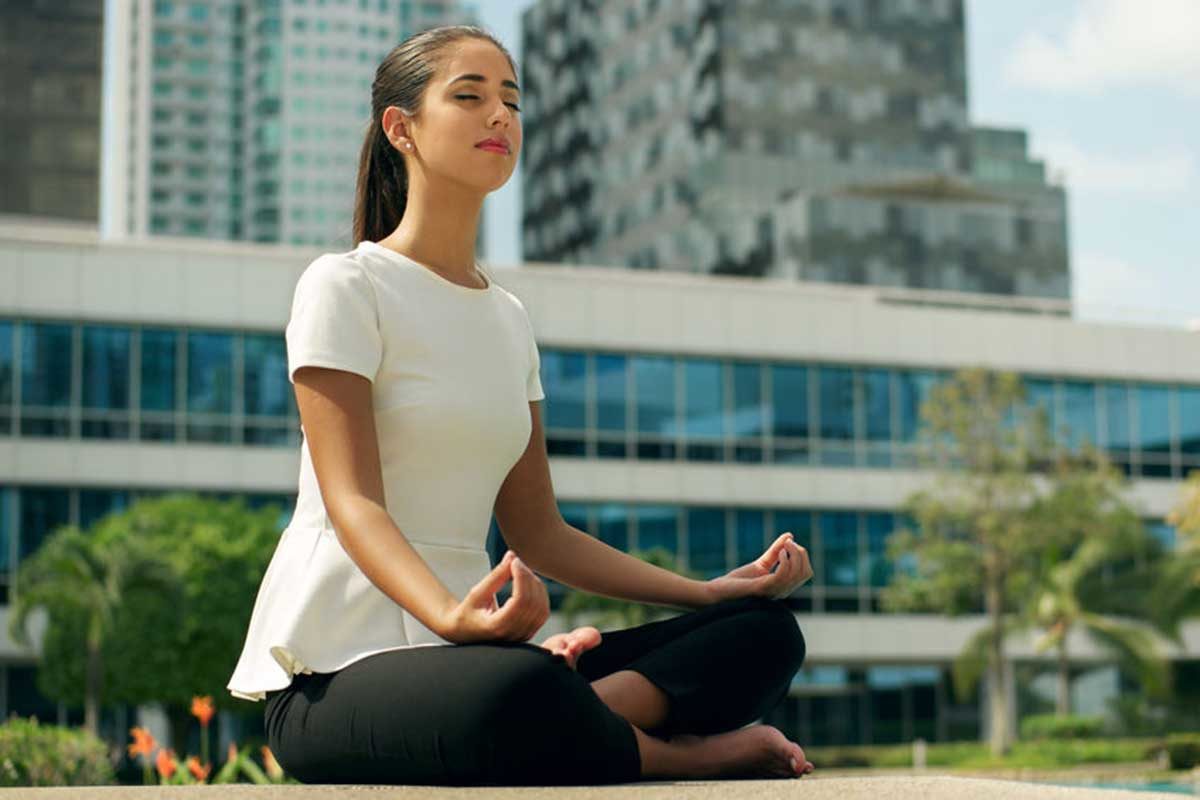I hear this often “I can’t meditate,” or “I’m just not good at meditation.”
I get it. It’s hard to calm your mind and relax your body, especially if this is far from the state you’re living in on a daily basis. It’s not your fault that you can’t go from an intense day of work, or a cardio class at the gym, right into a space of inner zen and calm.
It’s actually your nervous system that’s revved up (along with your stress hormones) so when you try to calm down with a 5 minute meditation timer set on your phone, it’s no wonder you feel it isn’t working out.
Mediation can also be anxiety provoking for a lot of people, especially if you’re a high-stress individual. That’s why in this post I’m offering you alternatives to the “sit down and stay quiet” meditation that might feel daunting for you.
For more tips to reduce stress in practical ways that suit your busy lifestyle, join my Simple Stress Reduction Facebook group.
I know, I know. Meditation is the secret sauce to take your wellness up to the status of the “elite gurus.” It’s touted as the “be all, end all” for the health of your entire mind-body-spirit, and the absolute must-do for beating stress.
But what if you can’t meditate?
Side note: I actually don’t believe anyone can be “bad at mediation,” because it’s a practice that gets better over time.
It still might not be for you at this stage, especially if you’re super high-stress to begin with.
Practicing meditation is an excellent approach to optimizing your health and overall well-being. Meditation is great for relieving and dealing with stress, and all of the issues that come along with it. But it certainly is not the only way to get there.
The whole purpose of meditating is to calm the mind and emotions and relax our physical body too. And there is always more than one way to get there.
Let’s talk about some of the other things to try if meditation is too confronting or anxiety-provoking for you.
1. Journaling
Spending some time every day writing out your thoughts can help to relieve stress. You can use journaling to list the things you’re grateful for, this is known as gratitude journaling. You can use it as a “brain dump” to get all of your thoughts and ideas out of your head to soothe your mind. You can use “ever since” journaling to describe your life after you reach your goals.
2. Reading
It’s one thing to read to learn something that you have to learn, or to advance your knowledge. And, you can also read for pure pleasure. To get caught up in a story and just relax.
3. Colouring
Adult colouring books are all the rage! Not *that* kind of adult, but colouring pages with lots of detail and tiny areas to colour in. Something that can take you hours. You can always opt for something simple, like kids colouring pages too. The idea is the same. Repeated movements and focusing on the art you’re creating can help to clear your mind.
4. Knitting or crocheting (or other crafts)
Knitting, crocheting or other yarn activities are a great way to de-stress; this is a skill that comes in all levels from beginner to advanced. You can choose a quick little rectangular scarf to make, or a detailed sweater. You can choose the pattern, size, and yarn. Once you get into the flow of these skills, they’re great to do when you’re feeling stressed. Not only can they relax your mind to focus on your work, but you can end up warming yourself or others with the products you create.
5. Gentle exercise
Gently moving your body is another great way to de-stress. Activities that are slower and less intensive are ideal. Things like walking, yoga, stretching, or tai chi can all be great ways to relax your mind and improve your strength and balance at the same time.
6. Sleep in or take a nap
A common cause of increased stress hormones is lack of sleep. Too little sleep and too much stress go hand-in-hand. So, getting enough good quality sleep is important to help you break free from stress without having to meditate.
7. Pamper yourself
Maybe you love getting massages or mani/pedi’s? Maybe you love a long bath or lighting candles? Perhaps you can add your favourite relaxing music to the mix for a pampering evening? Spending some time to pamper yourself regularly is great for your mind, body, and spirit.
8. Spend time in nature
You don’t have to head away for vacation to relax in nature. While a calm beautiful beach or cabin in the woods may be amazing, you don’t have to go that far. Even spending time on the grass at your local park or playground, or walking on a wooded trail in your neighbourhood can do the trick.
9. Make time for people and pets you love
It’s so important to spend time with family, friends, and pets whom you love. New research is coming out about the health issues related to loneliness. Reach out and plan to hang out with your besties, or even offer to take your neighbour’s dog for a walk in the park.
10. Deep Breathing
Learn a deep breathing technique that will get you centered and relaxed quickly in my free De-Stress on Demand Guide.
Conclusion
Stress reduction is the goal. How you do it, be it meditation or otherwise, is not that important. What’s important is that you find what works for you.
Try journaling, reading, colouring, knitting/crocheting, gentle exercise, sleep, pampering yourself, spending time in nature, and making time for people and pets you love.
Have other great ideas? Let me know what helps you de-stress in the comments below.
Recipe (calming): Lavender Essential Oil Room Spray

What you need:
30 drops Pure lavender essential oil
4 Tbsp. Witch hazel
¾ cup water
Small spray bottle
Instructions
Combine all ingredients in a small spray bottle using a funnel. Shake until well mixed.
To use: use 1-2 sprays in the room where you are. Try it in the bedroom, bathroom while taking a bath, or at your desk.
Tip: Lavender isn’t the only calming essential oil. You can also use angelica, balsam, benzoin, bitter orange, cedarwood, celery, chamomile, cornmint, cumin, curry, frankincense, grapefruit, jasmine, juniper, labdanum, laurel, lemongrass, marjoram, nutmeg, palmarosa, parsley, patchouli, peppermint, rose, rosewood, sage, sandalwood, scotch pine, spearmint, star anise, sweet basil, sweet orange, thyme, or ylang ylang.
References:
http://www.precisionnutrition.com/getting-control-stress
http://www.healthline.com/nutrition/16-ways-relieve-stress-anxiety
https://www.health.harvard.edu/blog/the-power-and-prevalence-of-loneliness-2017011310977
https://nccih.nih.gov/health/stress/relaxation.htm
https://www.dietvsdisease.org/do-essential-oils-work/
https://www.ncbi.nlm.nih.gov/pmc/articles/PMC3612440/
http://webprod.hc-sc.gc.ca/nhpid-bdipsn/atReq.do?atid=aromatherap&lang=eng
